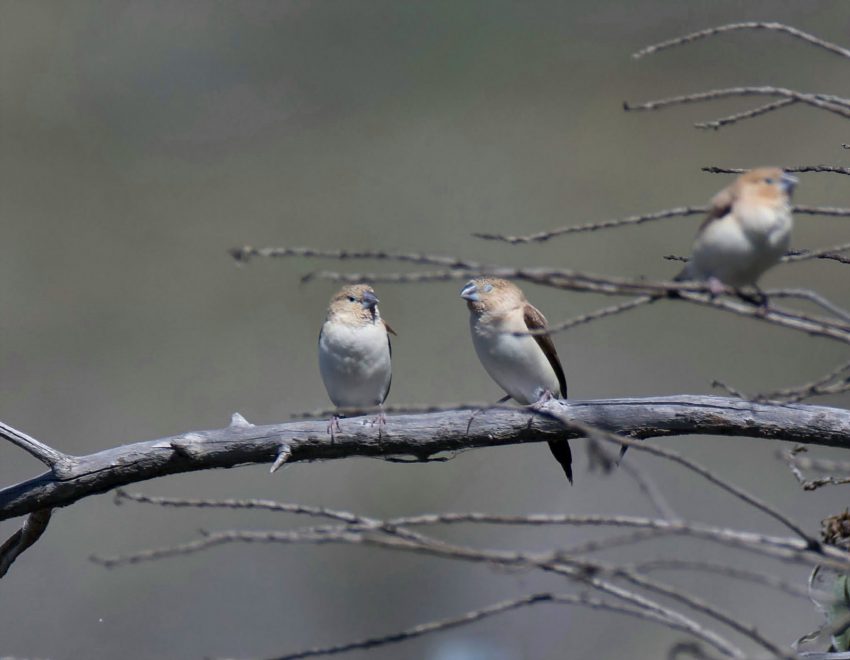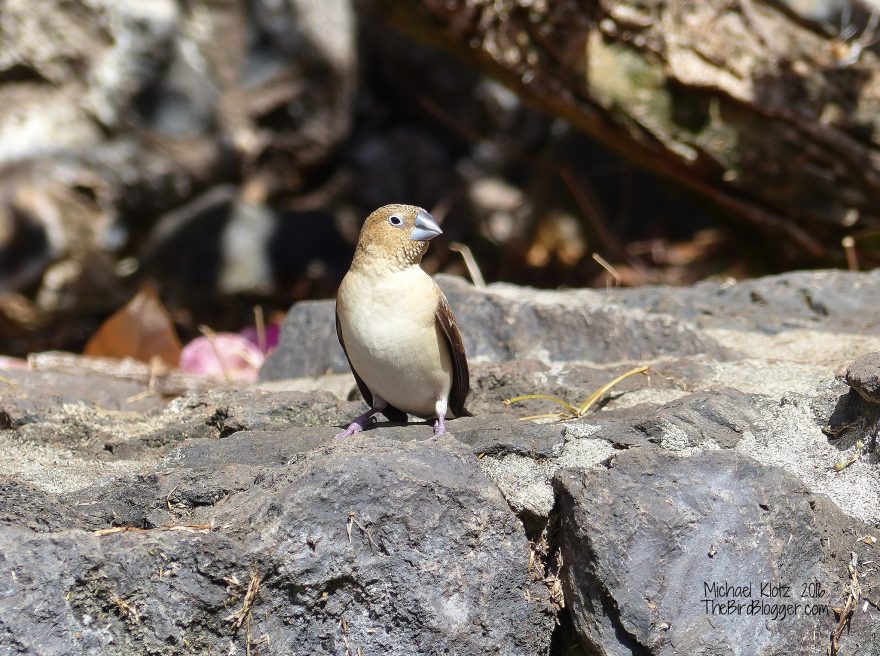The African silverbill is a small estrildid finch found in dry savanna habitat across central African. They have been established in captivity throughout much of the world, where they are appreciated for their low care requirements and ease of breeding. Silverbills can be difficult and expensive to obtain, as their drab colouring makes them unpopular among breeders.

Housing & Compatibility
African Silverbills can be housed successfully as single pairs, a colony, or as part of a mixed collection. They prefer a large planted aviary, but can tolerate a smaller aviary or flight cage.
African silverbills are a placid species and can usually be housed with most other placid finches. They should not cohabitate with any species with which they hybridize, including Indian silverbills, various mannikins, society finches, and potentially also zebra finches.
Diet & Feeding
A quality seed mix including canary seed, various millets and panicum forms the basis of the African silverbill’s diet. Seed lacks many essential vitamins and minerals which must be compensated for by introducing other foods. Sprouted seed increases the nutritional value of seed and is a cheap way to improve your birds health. Freshly grown green seed heads should also be offered frequently.
Leafy greens such as kale, bok choy, endive and silverbeet should be provided frequently. Silverbills may not consume a substantial amount of leafy greens, as they strongly prefer seeding grasses.
African silverbills don’t have much appetite for live food, even during the breeding season. Nevertheless, in a mixed collection where live food is offered, Silverbills will occasionally consume a small amount. Mealworms, maggots, termites, and small crickets are good livefood options. Commercial finch soft food mixes can also be provided for an added nutrient boost, particularly when breeding.
Do not feed anything from the list of forbidden foods.

Breeding
African silverbills breed best in spring and autumn, with a hen bird that is at least 12 months of age.
A wide variety of artificial nests will be accepted, though they have a preference for a dense shrub just above ground level. They will construct a dome-shaped nest from fine strands of dry grass.
They typically lay 2-4 eggs in each clutch, which are incubated by both parents for approximately 13 days. Young birds fledge the nest at three weeks of age and are usually independent a month later.
Young birds can be left in the aviary once they reach independence. They do colour up quite quickly and become indistinguishable from the parents, making leg rings essential to prevent adult birds accidentally being sold off.
Sexing
DNA testing is the most reliable way to accurately sex African silverbills. The sexes are largely indistinguishable, although females have slightly smaller heads and only males will sing.
Health
A strict worming and parasite control regime is essential to ensure the long-term health of any finch collection. African silverbills can be expected to live for 6-7 years.